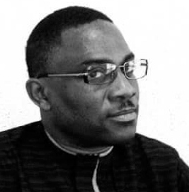

THE HUMAN COMPLEXITY [8]: FROM KNOWLEDGE TO EMPOWERMENT
Knowledge is acquired by those who are compelled and driven to seek it. When a man seeks to be truly free, he goes through whatever obscurity there is. It is the price he pays for freedom for to acquire anything of great value, there has to be great price.
It does not end there. That man, upon the acquisition of that knowledge has to apply and own the knowledge in order to be truly free by it. Application is what leads to ownership. The process of application is learning. Knowledge itself is not learning.
When we acquire knowledge through reading, listening to a teacher and when we experience something like witness it, we are sometimes so moved that we are compelled to reproduce it in our own lives. This is the activation of learning which leads to change and empowerment. That is when knowledge becomes power.
If we know something in the head or in the cognitive, and do nothing about it, we are not learning and bringing about change.
Until there is a change in behaviour, there is no learning.
We own knowledge after we apply it. The knowledge becomes concretized in us. It becomes ours. It becomes a reservoir of fortune for us. It becomes our reserved power, a well that we can draw from anytime we spot an opportunity to do so.
Can you imagine how much we know but cannot or have not concretized? That is why the majority of us remain the way we are. The concretization of knowledge is learning. That way, there is practicality. There is actuality. We transit from potential to actual.
This is the going from conception to completion, from ideation to invention, and the price is application or execution. It is a gruelling process or experience.
We know too much but we do not know enough because we are not doers. We are theorists who do not put to practice the knowledge we have encountered. Change does not happen in such a situation. We only remain inert.
The using of knowledge through execution makes us doers. That makes us producers. This is when knowledge is power, when the lives of others have been transformed through our practical application of ideas.
Imagine this: I have been through school, acquired college education, earned degree in this or that field, but I have not been trained to solve a specific problem. Where does all the knowledge lead me? What does it get me or do for me and others?
What about this? I have basic primary or secondary education that enables me to read and write. I got enrolled in a skills' acquisition programme and I received practical, hands on training in electronics, electricity, installations and have worked on projects in those fields. Now, I can manage projects in those areas because I have diligently served on projects for a couple of years.
What is the reality in the two scenarios? Does it make any sense where we are and why we are where we are? Scenario 1 is less or not deliberate. Scenario 2 seems a more deliberate approach to knowledge and its application to achieve productivity.
Until our knowledge is able to solve real everyday practical problems, until our knowledge is able to put smiles on faces, and put food on the table, it does not empower. It is potential, not actual, and we are tired of that.




